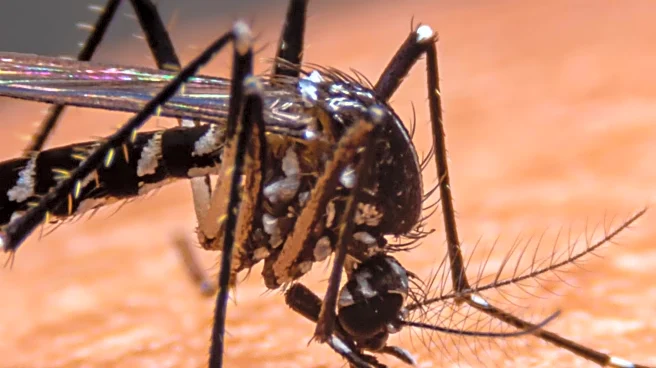What's Happening?
The Centers for Disease Control and Prevention (CDC) has issued a Level 2 travel warning for Guangdong Province in China due to a significant outbreak of chikungunya, a mosquito-borne illness. The CDC advises travelers to practice enhanced precautions, including using EPA-registered insect repellents, wearing long-sleeved clothing, and staying in screened or air-conditioned accommodations. Foshan city has been identified as the epicenter of the outbreak, prompting containment measures reminiscent of early COVID-era strategies. Chikungunya is spread through the bites of infected Aedes mosquitoes and can cause intense joint pain lasting weeks, months, or even years. While the illness is rarely fatal, it poses a higher risk to older adults, newborns, and individuals with chronic health conditions.
Why It's Important?
The travel warning highlights the potential health risks for U.S. citizens traveling to China, particularly pregnant women who may face rare transmission risks during childbirth. The outbreak underscores the importance of preventive measures against mosquito-borne diseases, which can have long-term health implications. With 46 travel-related cases reported in the U.S. in 2025, the warning serves as a reminder of the global nature of infectious diseases and the need for vigilance in international travel. The situation may affect travel plans and economic activities between the U.S. and China, as travelers reconsider their itineraries.
What's Next?
Travelers to Guangdong Province are expected to follow CDC guidelines to minimize the risk of infection. Health officials may continue to monitor the situation and update travel advisories as necessary. The approval of two vaccines against chikungunya in the U.S. could play a role in future prevention strategies, although pregnant women are advised to consult healthcare providers before vaccination. The outbreak may prompt further research into mosquito control and disease prevention methods.











